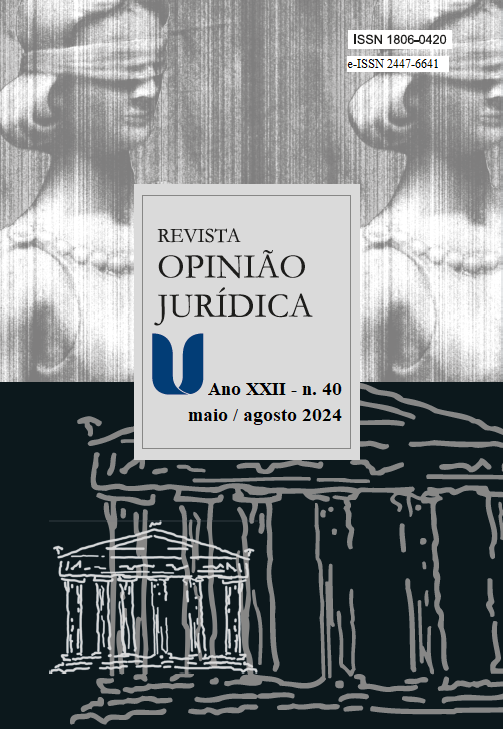Who owns the clients?
an analysis of the history of the resolution nº 16/98 and its application by the São Paulo bar association’s Court of Ethics and Discipline
DOI:
https://doi.org/10.12662/2447-6641oj.v22i40.p66-100.2024Keywords:
professional mobility and ethics, client-lawyer relationship, Court of Ethics and Discipline, Brazilian Bar AssociationAbstract
Contextualization: The client-lawyer relationship raises debates on professional ethics. The discussion about to whom clients belong–whether to professionals or to law firms–is especially relevant contemporarily.
Objective: This article aims to analyze the application of Resolution nº 16/98, which regulated the matter in the State of São Paulo and which, after much controversy, was recently revoked.
Method: The article uses the case analysis method; more specifically, we map, systematize and analyze the cases involving the resolution that were judged in the Court of Ethics and Discipline of the OAB/SP, in order to shed light on issues such as: can the lawyer who leaves a law firm serve clients or former clients of the firm? Who do the clients ultimately belong to? How to regulate professional mobility in law?
Results: Through the systematization of a sample of 36 cases, we propose to revisit the history of the application of the resolution in three stages: the first decade, in which the resolution was uncontestedly applied; the post-2008 period, when it started to be questioned and made more flexible; and, finally, a moment in which the dissent was strong enough to indicate the need for its revision.
Conclusions: Currently, the client's freedom to choose their representative in cases of professional mobility prevails, except for cases in which the withdrawing lawyer acts disloyally. From a political-regulatory point of view, we suggest that it is more appropriate for the parties themselves to regulate the matter contractually, as opposed to a general regulation made by the bar association.
Published
How to Cite
Issue
Section
License
Copyright (c) 2024 Revista Opinião Jurídica (Fortaleza)

This work is licensed under a Creative Commons Attribution-NonCommercial-ShareAlike 4.0 International License.
CESSION OF COPYRIGHTS
The submission of articles to analysis for publication on Opinião Jurídica implies the author(s) transfers copyrights to Centro Universitário Christus – UNICHRISTUS for reproduction, publicizing, distribution, printing and publication, according to the Publication Norm 414R, Opin. Jur., Fortaleza, year 12, n. 16, p.1-414, Jan./Dec. 2014, costs to be bore by UNICHRISTUS, in whatever format or means that may or shall exist, in accordance to articles 49 and following of Federal Law 9.610/98.
1. In ceding copyrights, the author(s) agrees to do so in exclusivity, free of charge and for the totality of the work.
2. UNICHRISTUS may make the work, in its entirety or in parts, available for scholarly purposes, without altering its contents, except for small corrections that are deemed necessary.
3. The cession of copyrights is valid in all countries and for versions of the material in its original language or translated into a foreign language.
RESPONSIBILITY FOR THE CONTENT
By submitting an article, the author(s) declare to have sole responsibility for the content of the piece and is(are), therefore, responsible for any judicial or extrajudicial measures referring to it.
1. In case of joint authorship, all authors are considered collectively responsible, except when proved otherwise.



















